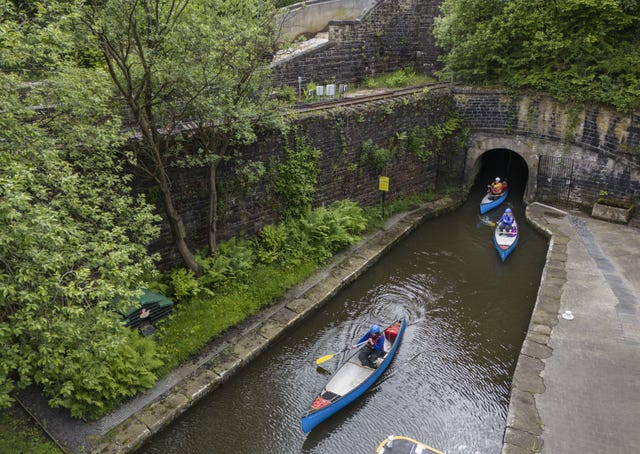Invitation to ‘paddle under Pennines’ through UK’s longest canal tunnel
Guided tours by canoe will take place for the first time through Standedge Tunnel.

Watersports fans are being given the chance to “paddle under the Pennines” with canoe trips through the longest canal tunnel in the UK.
The waterways charity Canal & River Trust says the new “bucket list opportunity” will see guided tours by canoe for the first time through Standedge Tunnel, which runs for three and a half miles between Marsden in West Yorkshire and Diggle in Greater Manchester.
The canal, which took more than 17 years to dig by hand and was completed in 1811, is described as one of the seven wonders of Britain’s waterways. As well as being the longest, it is also the highest and deepest canal tunnel in the UK.
Gordon McMinn, from Canal & River Trust, will be leading trips through the tunnel.
Mr McMinn, volunteer team leader and qualified paddle sports instructor, said: “This is a once-in-a-lifetime, bucket list opportunity for keen canoeists to paddle though this magnificent tunnel and explore its three and a half miles.
“It will give participants a real sense of this remarkable tunnel, one of the seven wonders of the waterways, which is steeped in history. The trips just emphasise that life’s better by – or in this case on – water.”
There will be 18 paddle trips over nine days in June, July and August.

Participants will use Canal & River Trust’s open canoes and the cost of the trips will be £100 for two people in a tandem canoe or £55 for a solo paddler.
The limited places are bookable on canalrivertrust.org.uk.
Sean McGinley, regional director for Yorkshire and the North East at Canal & River Trust, said: “We’re excited to launch a new chapter in the history of Standedge Tunnel, a real wonder of the waterways.”
He said: “This experience is one of the many ways people can help support our work, contributing to the vital funds needed to help us maintain our 2,000-mile network of canals and assets, while discovering this amazing treasure under the Pennines.”





